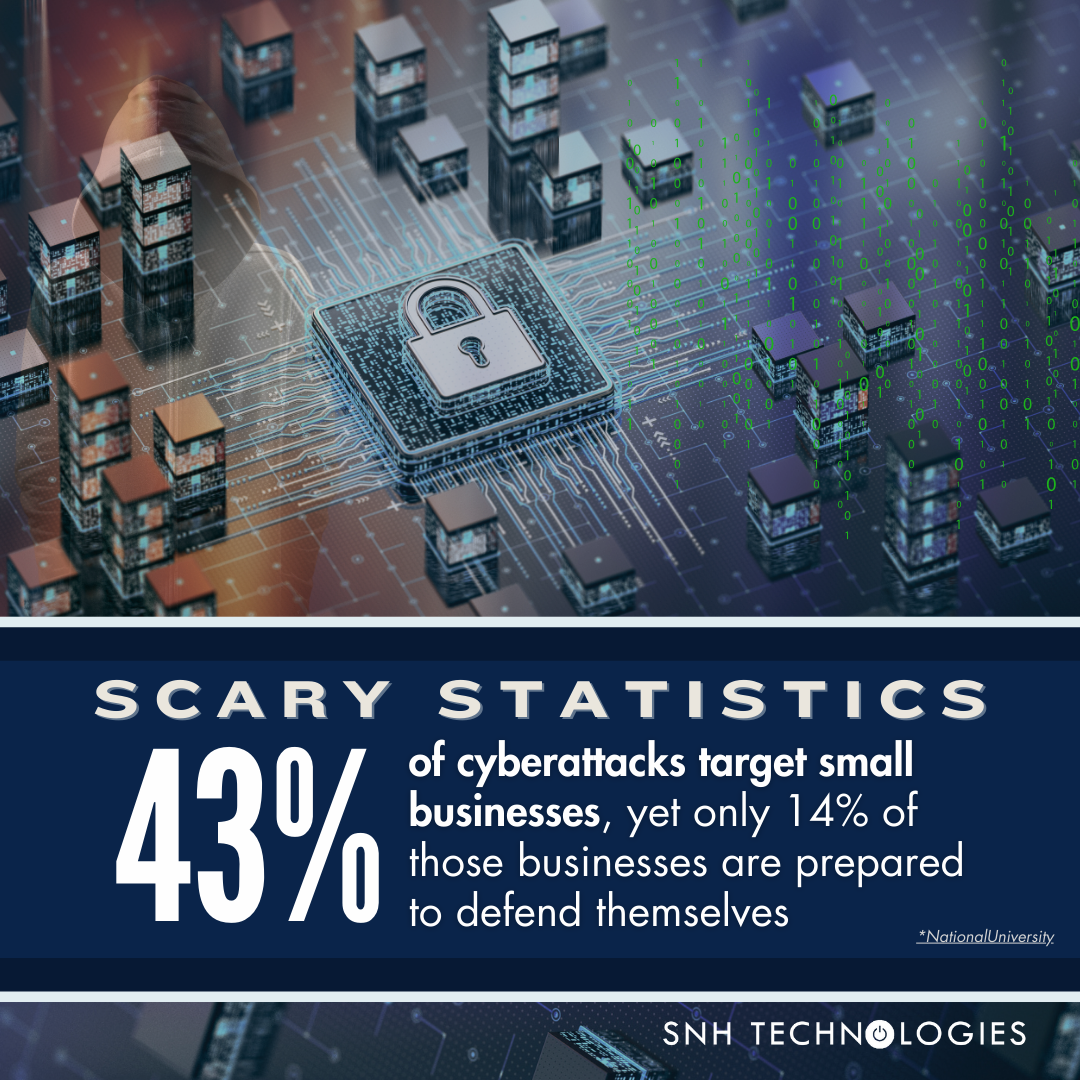Haunted Networks: How Cyber Attacks Lurk in the Shadows
As the digital landscape expands, businesses face an increasing number of cyber threats that lurk quietly in the shadows. Often going undetected until it’s too late, these cyberattacks can cripple operations, expose sensitive data, and cause irreparable financial damage. This article reveals surprising statistics about the frequency of cyberattacks and offers tips for strengthening your defenses before you become the next target.
In today’s rapidly evolving threat environment, investing in cybersecurity training services and understanding the various types of cybersecurity threats for businesses is critical to keeping your business secure.
Cybersecurity Threats: The Statistics You Need to Know
Cyber threats have become a constant presence in business operations. Here are some alarming statistics about the frequency and costs of cyberattacks:
75% of businesses experienced some form of phishing attack in 2023. These attacks often rely on human error, underscoring the importance of employee training(National University).
Ransomware attacks increased by 13% from 2022 to 2023, with the average ransom payout climbing to over $1.5 million(Cobalt: Offensive Security Services).
The global cost of cybercrime is expected to reach $10.5 trillion annually by 2025, up from $3 trillion in 2015(Cobalt: Offensive Security Services)(National University).
43% of cyberattacks target small businesses, yet only 14% of those businesses are prepared to defend themselves(National University).
These numbers reveal just how prevalent cyberattacks have become, regardless of the size or industry of a business. To mitigate cybersecurity risks, businesses must take proactive measures to safeguard their networks.
Types of Cybersecurity Threats for Business
The types of cyber threats businesses face have grown in complexity, and they can strike when least expected. Below are some of the most common types of cybersecurity threats for businesses:
Phishing: Phishing involves attackers tricking employees into providing sensitive information, such as login credentials or financial data. These attacks often come in the form of emails disguised as legitimate communications.
Ransomware: One of the most damaging threats, ransomware encrypts data and demands payment for its release. Without adequate backups and protection, businesses may lose access to crucial information.
Insider Threats: Employees, whether intentionally or unintentionally, can expose businesses to cyber risks. They may misuse access privileges or fall victim to social engineering tactics.
Malware: Malware, such as viruses, worms, and spyware, can infect systems and steal or damage critical data. Once malware enters a system, it can quickly spread across an entire network.
Denial of Service (DoS) Attacks: Attackers overwhelm a network or server with traffic, rendering systems unusable and causing operational downtime.
These threats highlight the need for comprehensive cybersecurity solutions and cybersecurity training services to help businesses prepare employees and secure their networks.
How Cybersecurity Training Services Help Defend Against Attacks
Employees are often the weakest link in a company’s defense against cyberattacks. That’s why cybersecurity training services are essential. These services focus on educating employees about identifying and responding to potential cyber threats, from phishing to malware.
Some key benefits of cybersecurity training include:
Increased Awareness: Employees learn to spot phishing attempts and other scams that target human error.
Improved Response Time: Trained employees can respond quickly to suspicious activities, reducing the risk of a successful attack.
Compliance with Regulations: Many industries require specific cybersecurity training to meet regulatory standards.
For a comprehensive cybersecurity training program, explore SNH Technologies' cybersecurity services to protect your business.
Cybersecurity Threats and Solutions: Protecting Your Business
With the rise of cybersecurity risks, businesses must adopt both preventative and responsive strategies. Here are some cybersecurity threats and solutions that can help you stay ahead of cybercriminals:
Multi-Factor Authentication (MFA): Implementing MFA adds an additional layer of security by requiring two or more forms of verification to access accounts.
Network Segmentation: This practice divides a network into smaller segments to minimize the damage a cyberattack can cause, ensuring that a breach in one area does not compromise the entire system.
Regular Backups: Backing up critical data regularly ensures that you can restore operations quickly after a ransomware attack or data breach.
Endpoint Security: Protecting every device that connects to your network is essential for securing remote workers and mobile users.
Employee Training: Continuous training programs ensure that your employees are up to date on the latest threats and best practices.
SNH Technologies offers managed security services to help you implement these solutions and strengthen your defenses.
Summarize it: Don’t Let Cyber Threats Haunt Your Business
The reality is that cyberattacks can strike at any time, and businesses that fail to take proactive measures will find themselves at the mercy of cybercriminals. By investing in cybersecurity training services, understanding cybersecurity risks, and implementing a multi-layered defense strategy, you can protect your business from becoming another statistic.
Don’t let your business be haunted by cyber threats. Learn more about how SNH Technologies can help you safeguard your operations by visiting our IT security solutions page.


